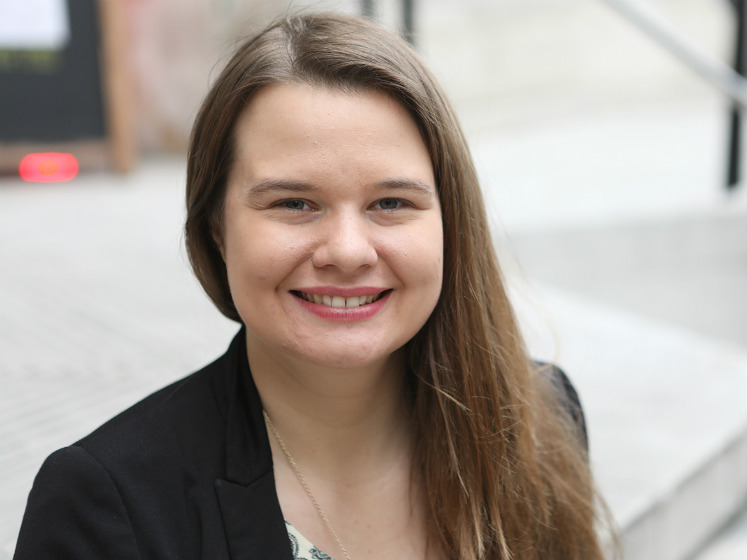 Laura Kudrna
Laura Kudrna
What are you currently researching?
Put simply, money and happiness. More specifically, in my PhD, I investigate the relationship between socio-economic status and subjective wellbeing. I look at both individual levels of attainment, such as more income and better education, as well as ‘relative’ levels of attainment, such as the average income or median education of one’s neighbours.
I am also working on a research grant that defines an account of subjective wellbeing called ‘sentimental hedonism’, which emphasises people’s everyday experiences of both ‘pleasure’ and ‘purpose’ over time.
Why did you choose this area of study?
During my psychology undergraduate course, I was fascinated by two findings. One showed that just thinking about your ethnicity could change your performance on standardised tests. Another showed that your perception of your socio-economic position in society was more important for your physical health than your ‘actual’ socio-economic position.
I combined the two ideas in my dissertation and showed that simply thinking about your socio-economic position can change how intelligent you perceive yourself to be. In my PhD, I extended this to the effect of one’s socio-economic position on happiness rather than intelligence.
How will your research improve or have a wider impact on society?
I hope it can help inform decisions that individuals make about their socio-economic attainment in ways that benefit their – and others’ – happiness. I also hope it will inform the decisions of policymakers interested in what we should aim for as a society and when allocating scarce public resources.
What do you hope to do career-wise, long term?
Continue to learn, teach and work with both the public and private sectors from within academia.
Can you provide any advice to prospective students about the most effective way to approach research and keep stress levels down?
They should read the book Happiness by Design by my supervisor, Professor Paul Dolan. It’s about how to make it easier to do the things that will bring you happiness, and to focus your attention on the things that matter for your wellbeing.
What resources are available at LSE to help young researchers?
I’ve been really impressed by the PhD academy. Their physical space is great for meeting with other students from different departments, and they have many events to help with things like publishing and networking.
In a few words, what is the best thing about studying at LSE?
Without any doubt – the people, including both staff and students. I am lucky to work with people passionate about what they research and teach and who have many interesting ideas.
See all interviews with LSE researchers